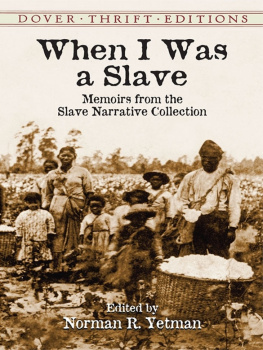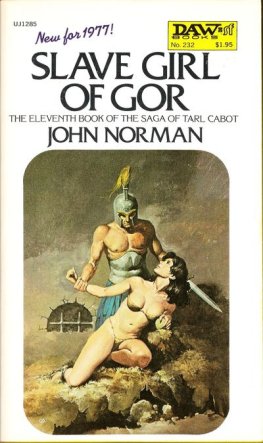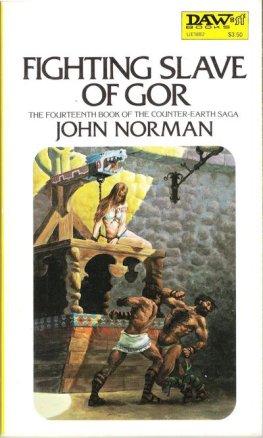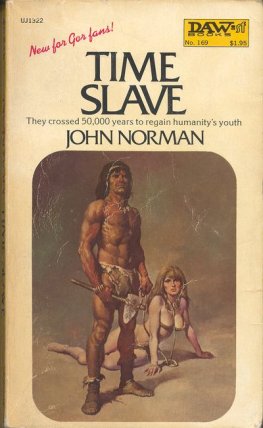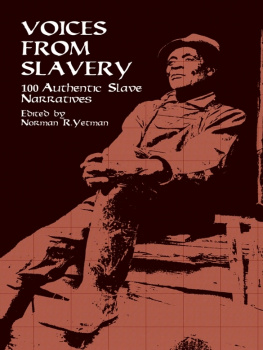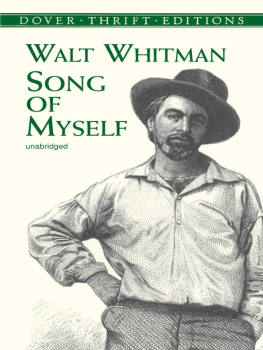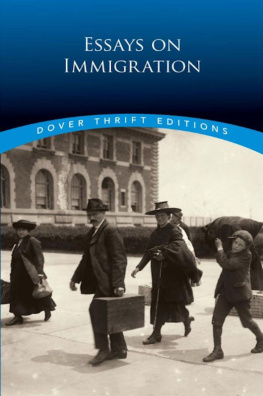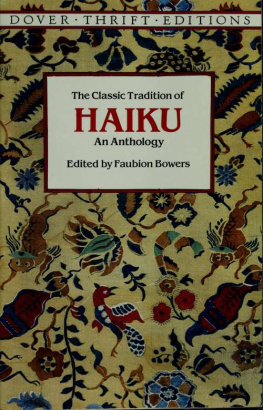Norman R. Yetman (Editor) - When I Was a Slave (Dover Thrift Editions)
Here you can read online Norman R. Yetman (Editor) - When I Was a Slave (Dover Thrift Editions) full text of the book (entire story) in english for free. Download pdf and epub, get meaning, cover and reviews about this ebook. year: 2012, publisher: Dover Publications, genre: Detective and thriller. Description of the work, (preface) as well as reviews are available. Best literature library LitArk.com created for fans of good reading and offers a wide selection of genres:
Romance novel
Science fiction
Adventure
Detective
Science
History
Home and family
Prose
Art
Politics
Computer
Non-fiction
Religion
Business
Children
Humor
Choose a favorite category and find really read worthwhile books. Enjoy immersion in the world of imagination, feel the emotions of the characters or learn something new for yourself, make an fascinating discovery.
- Book:When I Was a Slave (Dover Thrift Editions)
- Author:
- Publisher:Dover Publications
- Genre:
- Year:2012
- Rating:3 / 5
- Favourites:Add to favourites
- Your mark:
- 60
- 1
- 2
- 3
- 4
- 5
When I Was a Slave (Dover Thrift Editions): summary, description and annotation
We offer to read an annotation, description, summary or preface (depends on what the author of the book "When I Was a Slave (Dover Thrift Editions)" wrote himself). If you haven't found the necessary information about the book — write in the comments, we will try to find it.
When I Was a Slave (Dover Thrift Editions) — read online for free the complete book (whole text) full work
Below is the text of the book, divided by pages. System saving the place of the last page read, allows you to conveniently read the book "When I Was a Slave (Dover Thrift Editions)" online for free, without having to search again every time where you left off. Put a bookmark, and you can go to the page where you finished reading at any time.
Font size:
Interval:
Bookmark:

DOVER THRIFT EDITIONS
EDITOR OF THIS VOLUME: KATHY CASEY
Copyright
Introduction copyright 2002 by Dover Publications, Inc. All rights reserved.
Bibliographical Note
This Dover edition, first published in 2002, is a republication of selected unabridged narratives from the Slave Narrative Collection developed from interviews recorded and transcribed by the Federal Writers Project, 193638, some of which were published in Voices From Slavery (edited by Norman R. Yetman; first published in 1970 by Holt, Rinehart and Winston, Inc., New York; republished by Dover Publications in 2000). The Introduction by Norman R. Yetman was written for the 2002 edition.
Library of Congress Cataloging-in-Publication Data
When I was a slave : memoirs from the Slave Narrative Collection / edited by Norman R. Yetman.p. cm.(Dover thrift editions)
Narratives originally recorded by the Federal Writers Project between 1936 and 1938 under the sponsorship of The Library of Congress and compiled as a manuscript collection under the title Slave narratives in 1941, subsequently referred to as the Slave Narrative Collection.
9780486111391
1. SlavesUnited StatesBiography. 2. African AmericansInterviews. I. Yetman, Norman R., 1938- II. Federal Writers Project. III. Slave narratives. IV. Series.
E444 .W564 2002
305.567092273dc21
2002019227
Manufactured in the United States by Courier Corporation
42070107
www.doverpublications.com
Table of Contents
Acknowledgments
I am indebted to Raena Gardner, Catherine Heim, Sheri Johnson, Holly Krebs, Cara Lakin, Aaron Paden, and Terri Rockhold, who read a voluminous number of the narratives and assisted me in selecting those that we collectively felt were the most compelling and revealed most vividly the realities of slave life.
N.R.Y.
Introduction
The Great Depression of the 1930s was the most devastating economic crisis ever experienced in the United States. In response to massive unemployment throughout the entire country, the federal government under the administration of Franklin D. Roosevelt created a wide range of programs to achieve economic recovery. Among the most prominent of these New Deal programs was the Works Progress Administration (WPA), which was designed to put unemployed people to work using their skills on public-works projects such as building roads, dams, bridges, and swimming pools. However, because unemployment was so widespread and affected not only unskilled and blue-collar workers, the WPA included work projects for unemployed white-collar workers as well. These federally supported relief projects were implemented through the Federal Arts Project, an umbrella organization that included the Federal Art, Music, Theatre, and Writers Projects, which were designed to assist unemployed artists, musicians, actors, and writers by providing them with employment that would utilize their skills. With its creation the federal government embarked upon an unprecedented program of support for artistic and cultural endeavors.
One of the most noteworthy and enduring achievements of the WPA was the Slave Narrative Collection, a group of autobiographical accounts of former slaves. Compiled in seventeen states during the years 193638, the Collection consists of more than two thousand interviews with former slaves. The interviews, most of them first-person accounts of slave life and the respondents personal reactions to bondage, afforded aged ex-slaves an unparalleled opportunity to have recorded for posterity their personal accounts of slave life, to describe in their own words what it had felt like to be a slave in the United States.
The Slave Narrative Collection provides a unique and virtually unsurpassed collective portrait of a historical population. Indeed, historian David Brion Davis has argued that the voluminous number of documented slave testimonies available in the United Statesthe vast majority of which are interviews with former slaves by members of the Federal Writers Projectis indisputably unique among former slaveholding nations. In addition to the large number of personal accounts that it contains, the Collection is invaluable because of the great diversity of the slave experiences that were reported. The ex-slaves ranged in age from one year old to more than fifty at the time of emancipation in 1865. More than two-thirds were older than eighty when they were interviewed, more than seventy years after slavery was legally ended. Almost all had experienced slavery within the states of the Confederacy and still lived there. All major slave occupations were represented. Moreover, the size of the slave units on which respondents reported living varied considerably, from plantations with more than a thousand slaves to situations in which the informant was the only slave. The treatment these individuals reported ran the gamut from the most harsh, impersonal, and exploitative to living and working conditions that were intimate and benevolent. The WPA ex-slave interviews thus constitute an illuminating and invaluable source of data about Southern life before, during, and after the Civil War; about the institution of slavery; and, most important, about the reactions, responses, and perspectives of those who had been enslaved.
The national office of the Federal Writers Project requested that copies of the interviews obtained by state and local Writers Project workers be forwarded to Washington, D.C. The narratives then were organized into the nineteen-volume series that became known as the Slave Narrative Collection, which was deposited in the Rare Book Room of the Library of Congress. However, because materials found in the Rare Book Room can be examined only in the Library of Congress itself, the interviews were for many years relatively inaccessible to a broad readership. The existence of the Collection was first publicized in 1945 with the publication of B. A. Botkins Lay My Burden Down, which is comprised of excerpts and selections from the Collection. While Lay My Burden Down vividly captures the flavor of the Collections contents, only a handful of the more than two thousand interviews in the Collection were reprinted in their entirety. Responding to the need to make complete interviews more widely available, in 1970 I published Voices From Slavery (also published in a text edition under the title Life Under the Peculiar Institution ), which contains 100 complete interviews. In 1972 and 1973 Greenwood Press published The American Slave: A Composite Autobiography, under the editorship of George Rawick. This sixteen-volume series included the entire Slave Narrative Collection, as well as two volumes of interviews conducted in the 1930s at Fisk University. The American Slave series was extended in 1977 and 1979, when Greenwood published an additional twenty-two volumes of interviews with former slaves, most of them collected as part of the Federal Writers Project efforts but not included in the Slave Narrative Collection.
In 2000 Dover Publications reissued Voices from Slavery, which, in addition to the interviews with former slaves, contains essays describing the history of the Slave Narrative Collection and its impact on the scholarship about American slavery. The primary objective of When I Was a Slave, which includes some interviews previously published in Lay My Burden Down and Voices From Slavery, is to provide the reader with a concise introduction to the Slave Narrative Collection by reprinting some of the most detailed, compelling, and engrossing life histories in it. I have edited the narratives only slightlyprimarily to improve readability and continuity. I have sought to achieve some uniformity of dialect spelling, but at no point have the metaphors or the patterns of speech themselves been changed. Because the primary goal of the project to interview former slaves was to gain information on their recollections of slave life and emancipation, I did omit occasional comments, usually very brief, about informants living conditions when they were interviewed. Readers interested in viewing the entire Slave Narrative Collection are fortunate that the Library of Congress has recently made it available over the Internet at: http://memory.loc.gov:8081/ammem/snhtml/snhome.html/
Next pageFont size:
Interval:
Bookmark:
Similar books «When I Was a Slave (Dover Thrift Editions)»
Look at similar books to When I Was a Slave (Dover Thrift Editions). We have selected literature similar in name and meaning in the hope of providing readers with more options to find new, interesting, not yet read works.
Discussion, reviews of the book When I Was a Slave (Dover Thrift Editions) and just readers' own opinions. Leave your comments, write what you think about the work, its meaning or the main characters. Specify what exactly you liked and what you didn't like, and why you think so.

